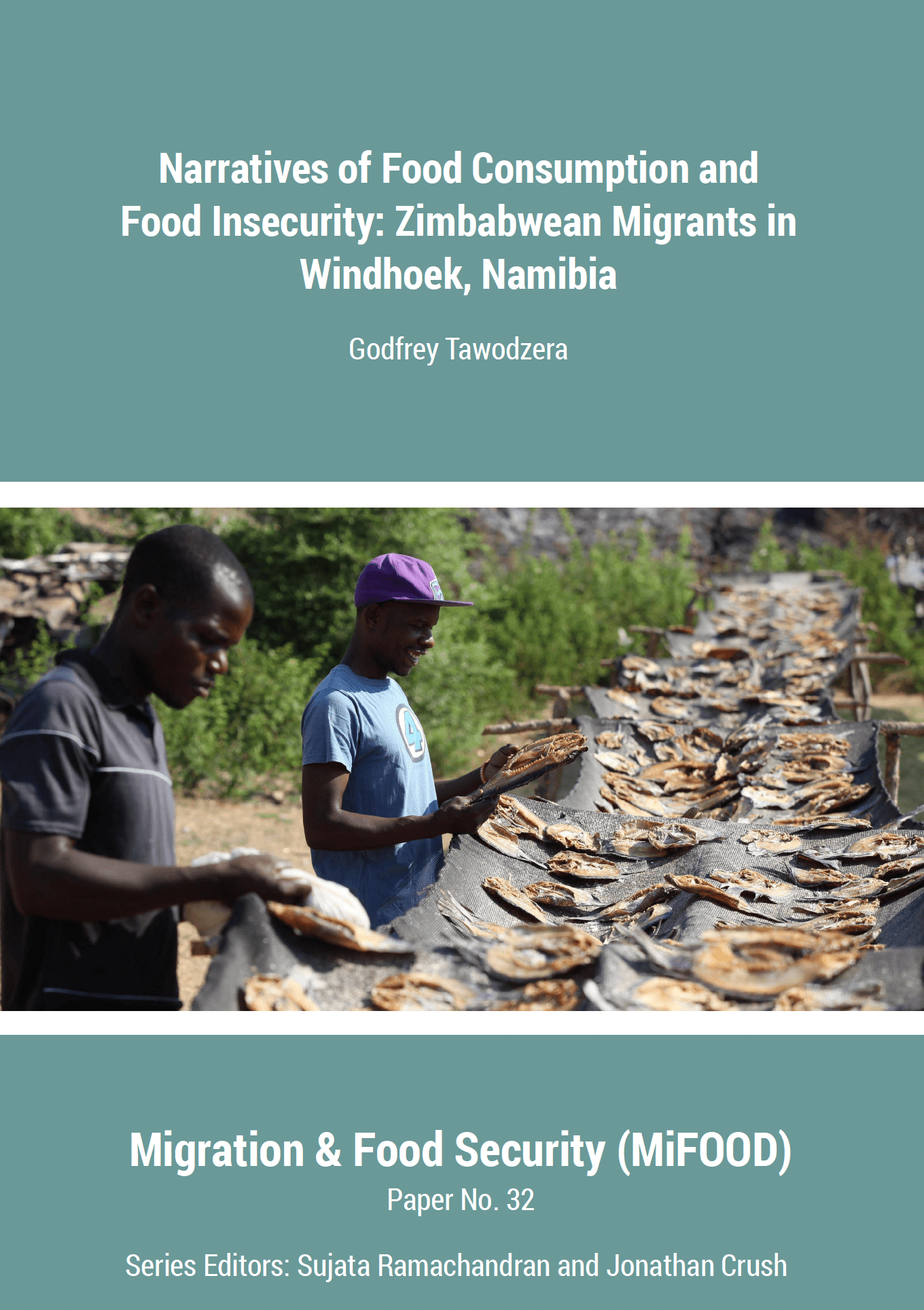Decades of interlocking economic and political crisis have generated significant out-migration from Zimbabwe to other countries. Neighbouring countries with relative political stability and better livelihood opportunities, such as Namibia, have witnessed increased inflows of Zimbabweans. While there are studies documenting these movements, far less attention has been paid to the food security of Zimbabwean migrants in other countries. This paper investigates the changing dietary and food consumption patterns of recent Zimbabwean migrants in Windhoek, Namibia, and the impacts of these changes on household food security. The narratives of 35 Zimbabwean migrant households in Windhoek show that they face numerous food security challenges, including an inability to access desirable foods, the high cost of traditional foods, and reliance on ultra-processed foods, with negative consequences for their households.

